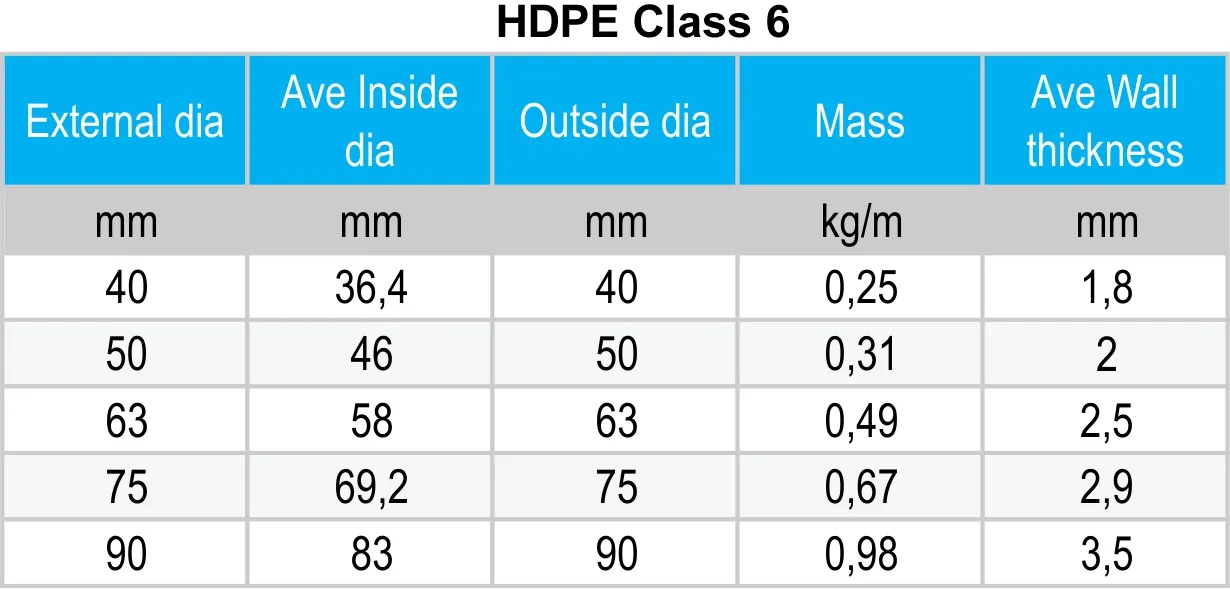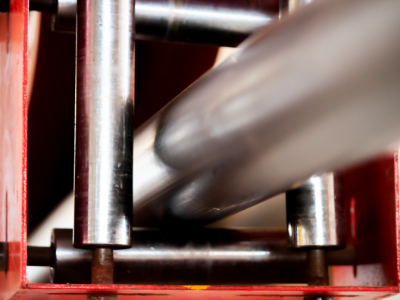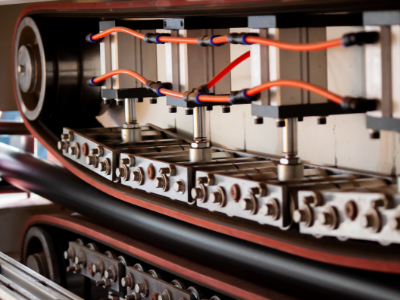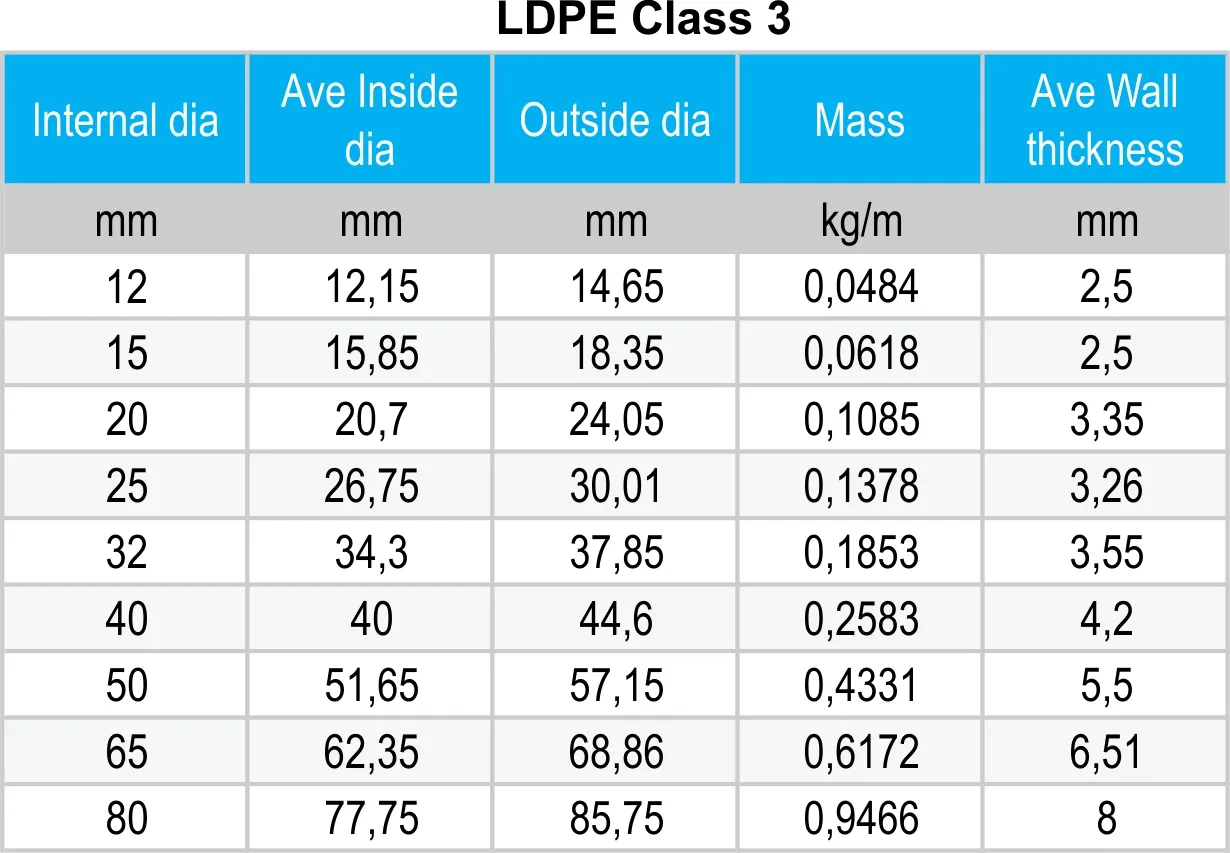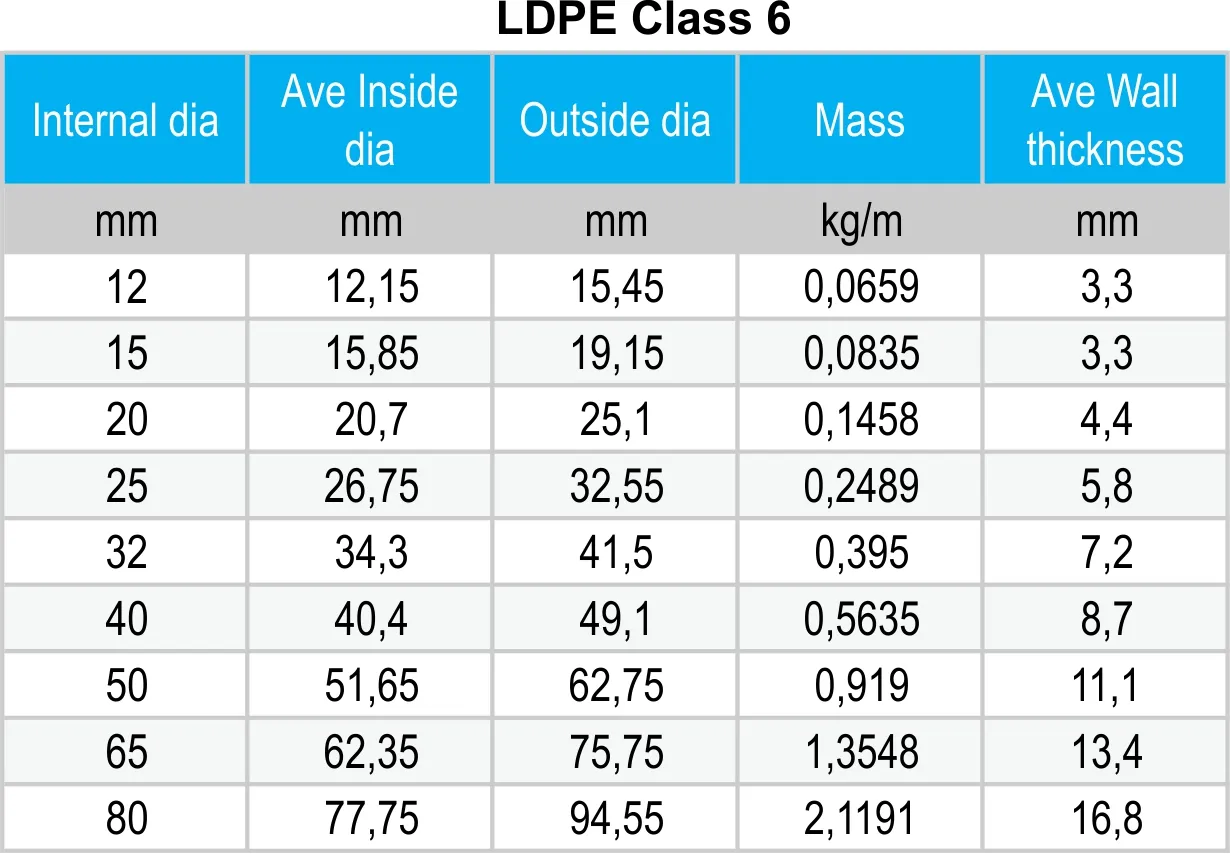HDPE Class 6
High-Density Polyethylene Piping
HDPE is a polyethylene thermoplastic made from petroleum. HDPE is resistant to many different solvents and has multiple applications and are strong through high temperatures. When comparing failure ratings when exposed to events like rain, stress, wind, heat or cold, HDPE is proven to be durable.

Areas of Application
- HDPE can carry water, wastewater, slurries, chemicals, and hazardeous wastes.
- HDPE pipes are safe for water applications e.g. drinking water and agricultural irrigation. Disinfectants such as chlorine and chloramine are approved for use in HDPE pipe.
- HDPE pipes delivers strong, long-lasting performance with a light weight and price tag. Conservatively expected to last 50-100 years by the Plastic Pipe Institute.
- HDPE pipes connect with compression fittings. HDPE pipes can be used in trenchless applications where digging is difficult or impossible.
- HDPE material may be used for above ground pipeline installations as it is UV protected and if it meets the hydrostatic pressure requirements of the design.
Installation
- HDPE installation can be done in two ways.
- An option would be to dig a trench for pipe laying while an alternative is to use a commercial auger which will drill through the ground and at the same time pulls the pipe with it.
- The latter is recommended for situations where trenching might not be allowed or possible like in streets or driveways.
- Trench installation, on the other hand, is easier since there is no need to use joints.
